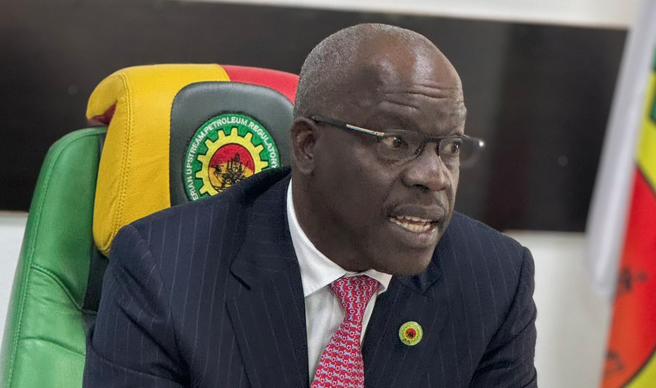Dangote Refinery Shatters Records, Expands to Become World's Largest Oil Processor

The Dangote Petroleum Refinery is set to significantly expand its processing capabilities, with plans to increase its capacity from the current 650,000 barrels per day (bpd) to an impressive 1.4 million bpd. This ambitious expansion, announced by Alhaji Aliko Dangote, President of the Dangote Group, during a media briefing in Lagos, will position the facility as the largest refinery in the world upon its completion, surpassing India’s Jamnagar Refinery.
Construction work for this major expansion is slated to begin immediately and is projected to be completed within three years. The project is expected to be a significant boost to local employment, engaging approximately 65,000 workers, with a strong emphasis on Nigerian participation, targeting 85 percent local hires. Alhaji Dangote expressed gratitude to President Bola Tinubu for his support, highlighting the national importance of the initiative.
Beyond crude oil processing, the refinery is also upgrading and expanding other critical operations. Its power generation capacity will be doubled from 500 megawatts to 1,000 MW, ensuring robust energy supply for its vast operations. Furthermore, production standards are set to improve from Euro V to Euro VI specifications, enhancing the quality of refined products. The facility will also significantly expand its Polypropylene production from 900,000 metric tonnes to 2.4 million metric tonnes per annum. This increase will enable richer production of linear alkylbenzene, a vital ingredient for detergent manufacturing, and facilitate additional production of base oils, broadening the refinery's product portfolio.
The Dangote Refinery is seen as a transformative force for Nigeria, aiming to achieve energy independence by drastically reducing the nation’s reliance on imported fuel, despite Nigeria being a major oil producer. It has already begun to drive down petrol prices for consumers and is expected to cater to demand from West and East Africa. The refinery also plays a role in the global energy market, exporting aviation fuel to key regions including the United States, Europe, and Brazil. In a move towards broader ownership and market transparency, the Dangote Group plans to list the refinery on the Nigerian Stock Exchange in 2026, allowing Nigerians to become shareholders in the multi-billion-dollar enterprise.
Despite its potential, the refinery has sparked concerns regarding a potential monopoly. However, another privately owned refinery, BUA, is currently under construction by Nigerian billionaire Abdulsamad Rabiu, with an anticipated production capacity of 200,000 barrels per day upon completion, indicating a growing competitive landscape.
The refinery has faced recent industrial challenges, including a two-day strike by a fuel tanker drivers’ union in September over allegations of hiring new drivers on condition they wouldn't join a union, which the refinery denied. A separate dispute involved the PENGASSAN oil and gas workers’ union, which accused the refinery of firing 800 local workers for unionizing and replacing them with 2,000 workers from India. The refinery refuted these claims, stating an unspecified number of workers were terminated over "acts of sabotage." Government mediation successfully ended the two-day strike that concluded on October 1, with Dangote acknowledging the federal government's role in resolving these "disruptions linked to union activities and some sabotage attempts."
In the broader Nigerian energy market, the landing cost of imported Premium Motor Spirit (petrol) has shown a marginal downward trend in recent weeks, dropping from N849.61 to N839.97 per litre by October 21. Data from the Major Energies Marketers Association of Nigeria (MEMAN) Competency Centre confirmed this decrease. Despite these reductions, the benefits have yet to reach consumers, with depot owners maintaining gantry prices and filling stations selling petrol around N915 and above. Experts like Prof. Wunmi Iledare of the Nigerian Association for Energy Economics attribute this discrepancy and the overall price instability to structural weaknesses, overreliance on imported fuel, the lingering effects of the COVID-19 pandemic, subsidy removal, and the floating of the naira. Iledare suggests that with effective governance, petrol could potentially be sold for around N800 per litre.
You may also like...
Super Eagles Fury! Coach Eric Chelle Slammed Over Shocking $130K Salary Demand!
)
Super Eagles head coach Eric Chelle's demands for a $130,000 monthly salary and extensive benefits have ignited a major ...
Premier League Immortal! James Milner Shatters Appearance Record, Klopp Hails Legend!

Football icon James Milner has surpassed Gareth Barry's Premier League appearance record, making his 654th outing at age...
Starfleet Shockwave: Fans Missed Key Detail in 'Deep Space Nine' Icon's 'Starfleet Academy' Return!

Starfleet Academy's latest episode features the long-awaited return of Jake Sisko, honoring his legendary father, Captai...
Rhaenyra's Destiny: 'House of the Dragon' Hints at Shocking Game of Thrones Finale Twist!

The 'House of the Dragon' Season 3 teaser hints at a dark path for Rhaenyra, suggesting she may descend into madness. He...
Amidah Lateef Unveils Shocking Truth About Nigerian University Hostel Crisis!

Many university students are forced to live off-campus due to limited hostel spaces, facing daily commutes, financial bu...
African Development Soars: Eswatini Hails Ethiopia's Ambitious Mega Projects

The Kingdom of Eswatini has lauded Ethiopia's significant strides in large-scale development projects, particularly high...
West African Tensions Mount: Ghana Drags Togo to Arbitration Over Maritime Borders

Ghana has initiated international arbitration under UNCLOS to settle its long-standing maritime boundary dispute with To...
Indian AI Arena Ignites: Sarvam Unleashes Indus AI Chat App in Fierce Market Battle

Sarvam, an Indian AI startup, has launched its Indus chat app, powered by its 105-billion-parameter large language model...





